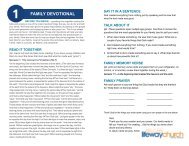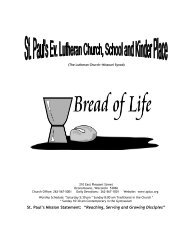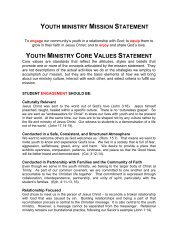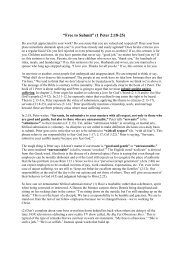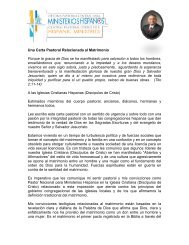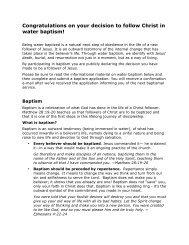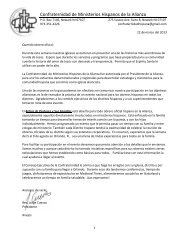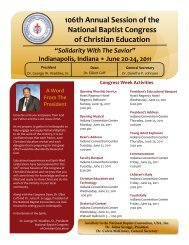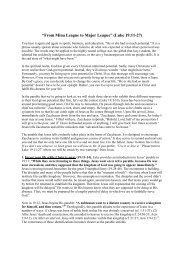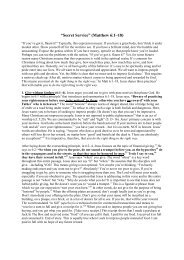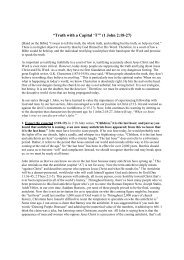A Proposal to Reduce Unnecessary Divorce - Razorplanet
A Proposal to Reduce Unnecessary Divorce - Razorplanet
A Proposal to Reduce Unnecessary Divorce - Razorplanet
You also want an ePaper? Increase the reach of your titles
YUMPU automatically turns print PDFs into web optimized ePapers that Google loves.
30<br />
clergy, pas<strong>to</strong>ral counselors associated with faith communities, or professional<br />
therapists. Among them are skilled practitioners who have helped many married<br />
couples. However, there is reason <strong>to</strong> believe that the quality of marriage<br />
counseling services available in many communities is inadequate <strong>to</strong> serve as<br />
the main resource for couples at high risk for divorce. 36<br />
Most lay people do not realize that therapists practicing marriage counseling in<br />
America usually have not been adequately trained for this difficult form of therapy.<br />
Therapists are typically trained in individual therapy, not couples therapy.<br />
Although an estimated 80 percent of therapists in private practice report that<br />
they do at least some marital therapy, most mental health professional degree<br />
or recertification programs do not require specific training in marriage therapy.<br />
It is an open secret among experienced practitioners of marriage counseling<br />
that many of their fellow counselors, even if they are good individual counselors,<br />
are poor marriage counselors. The result is that such therapists <strong>to</strong>o often<br />
fail in treating conflicted or demoralized couples. 37<br />
The theoretical standpoint of most therapists with regard <strong>to</strong> marriage is also a<br />
problem. Counselors typically feel they should hold a neutral stance <strong>to</strong>wards<br />
whether the marriage survives or ends in divorce. Divorcing or staying married<br />
are seen as equally valid outcomes, much as might one view staying in a job<br />
or moving in<strong>to</strong> a different job. The therapist believes in helping the client gain<br />
clarity about his or her own feelings without trying <strong>to</strong> influence the client’s decision<br />
<strong>to</strong> stay in a marriage or get a divorce.<br />
One national study of therapists specializing in marriage and family therapy<br />
found that a majority favored this neutral orientation. 38 In Minnesota, a survey<br />
of people who received marriage counseling supports this point of view. Of<br />
the 43 percent of divorced people in the poll who had seen such a counselor,<br />
only 35 percent rated their counselor as wanting <strong>to</strong> help save the marriage.<br />
(The remaining 41 percent of counselors were rated as neutral <strong>to</strong>wards the<br />
marriage, 14 percent as encouraging divorce, and 11 percent as “other.”) 39<br />
We believe that a main problem with the neutral approach, as opposed <strong>to</strong> a<br />
pro-marital-commitment stance, <strong>to</strong> working with at-risk married couples is<br />
that the counselor does not work vigorously <strong>to</strong> res<strong>to</strong>re hope for demoralized<br />
spouses. 40



